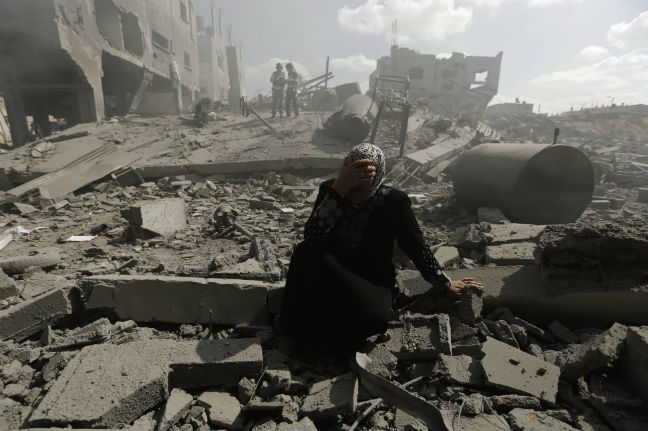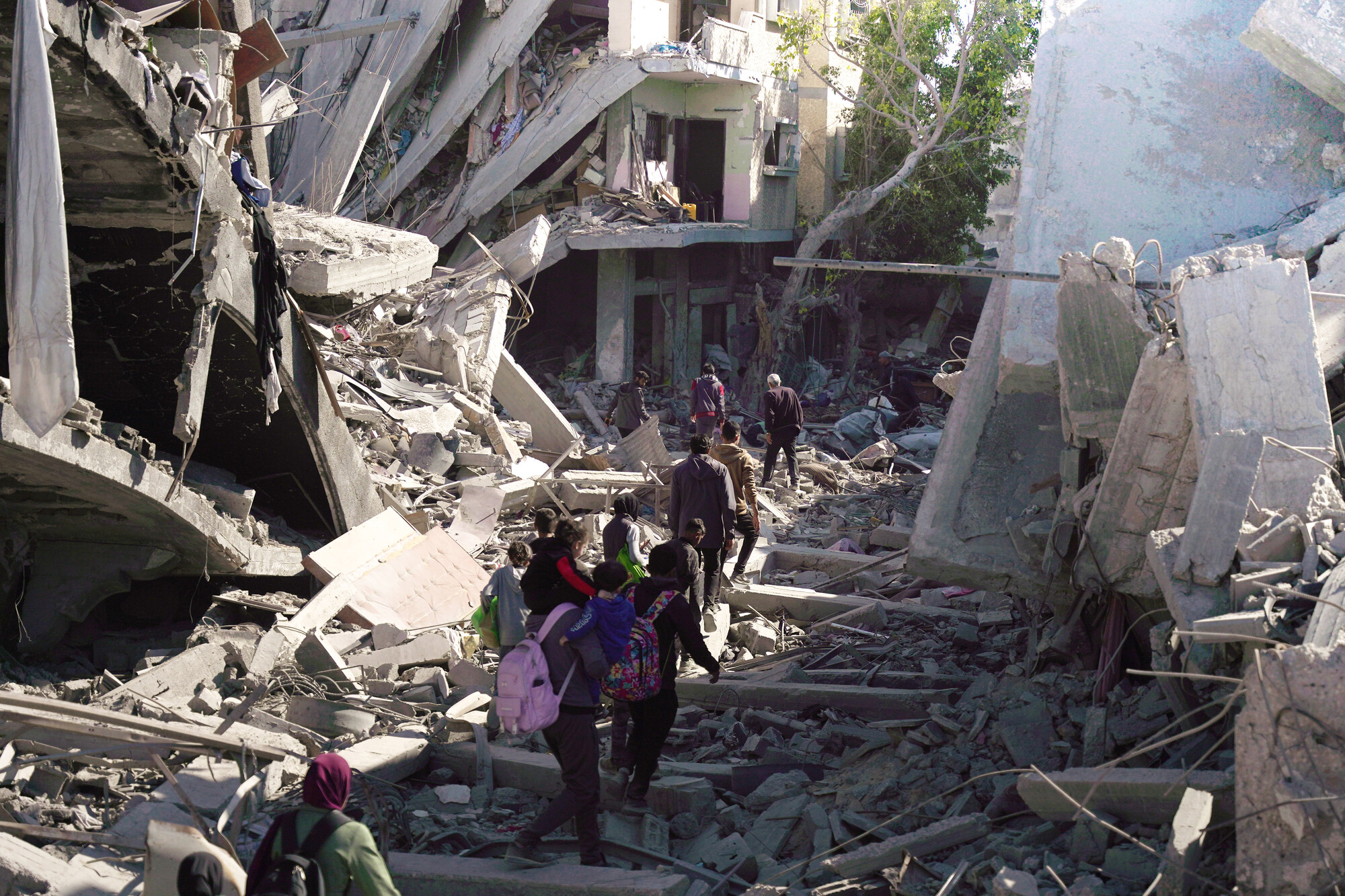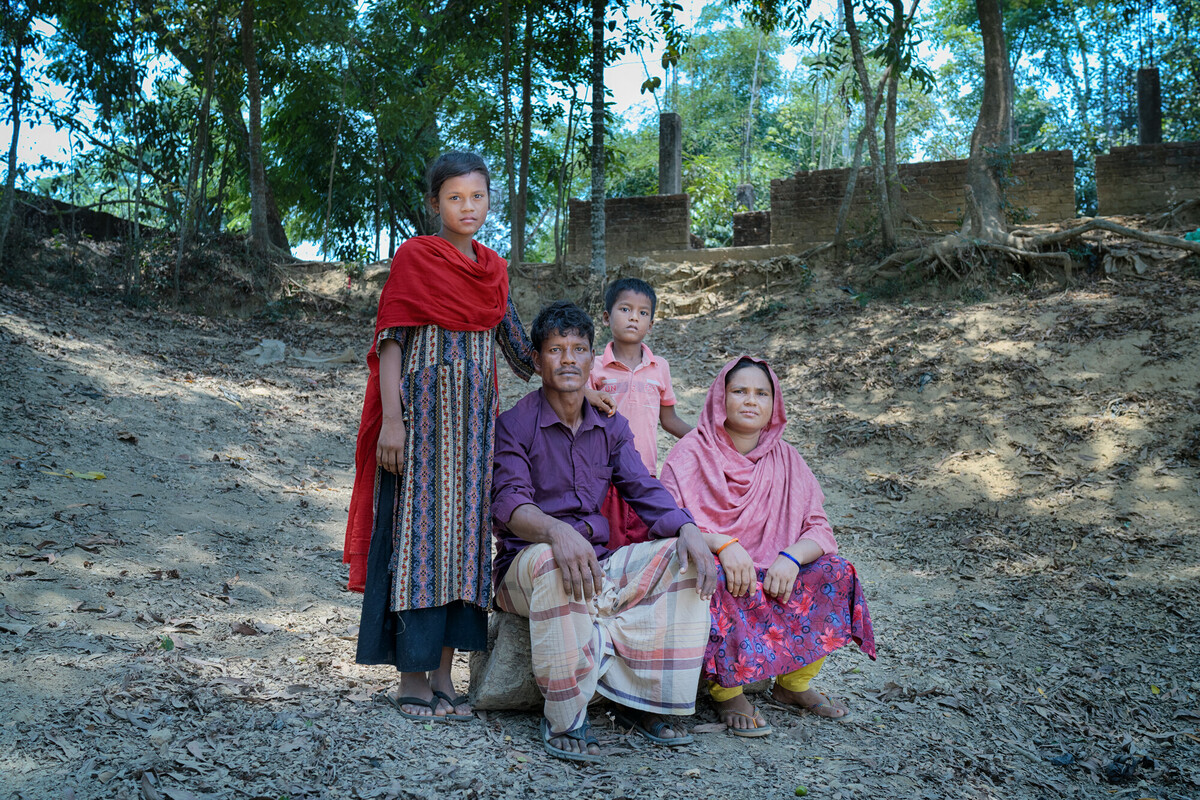During a brief 12 hour cessation of hostilities in Gaza, Oxfam teams delivered more vital water and aid to people who have lost everything in the past few weeks. Soon afterwards, the violence resumed. Oxfam’s Arwa Mhanna travelled around Gaza City in the brief window of calm. She shares her experience below.
I went to see my family for the first time since the start of this crisis. They live just five minutes drive away, but it has been too dangerous to visit. My mother was so happy to see me. My niece (6) and nephew (9) jumped for joy. But when I asked them about the past few weeks they fell silent and just stared.
So many children have been killed, injured or fled their homes these past weeks. Tens of thousands of children in Gaza will need psychological care for many years to deal with the horrors they have witnessed. I fear whole generations will be scarred for life.
And not only the children. I saw one of my Oxfam colleagues… it’s only three weeks since I saw her last, but I hardly recognized her pale and exhausted face. She was still in shock as she told me how she fled the Israeli bombing around her home, running through streets of dead bodies and homes turned to rubble.
“I had no words to express how I felt”
More than 215,000 people across Gaza have fled and sought refuge in schools, mosques, churches and hospitals. I went to Al Shifa hospital, where Oxfam and our local partners are delivering safe water to families sheltering there. They are in desperate conditions and have almost nothing — little food, water or shelter. But they have no other option. It’s the safest place they could find, even though many hospitals and health clinics have also been bombed and shelled.
I spoke with one of the doctors, who was completely exhausted after days treating dozens of injured civilians. His eyes were full of tears as he told me of the casualties and the conditions people are living in, and how he wished he could help them more. I had no words to express how I felt.
Outside, the streets that have been empty for the past few weeks were full of people rushing around. Gaza’s streets are always busy at this time of year as people prepare for the Eid Festival at the end of Ramadan, buying new clothes and chocolates and toys for their children. This time it was different.
“I don’t know if the people I met are alive”
People took advantage of the brief calm to visit family and buy supplies before the bombs start to fall again. People searched for the dead and checked on their homes. In one area, dozens of dead bodies were pulled from beneath the rubble of destroyed buildings — they have been there for days as medical teams have been unable to access the area. I received heartbreaking news that an old colleague was killed when his ambulance was hit by an airstrike.
The death toll has now passed 1,000, with thousands more injured — the vast majority of them civilians. The numbers are huge, but they are more than statistics — these are real people who had families and friends, jobs and dreams. Everyone in Gaza is affected.
There is such pain in my heart to see so many people going through so much suffering, with no chance to escape. But I still hope that this will end soon. The ceasefire lasted only 12 hours, and as I write the violence has returned. On Monday, Al Shifa hospital — where I met so many brave people — was hit, with many casualties being reported. I don’t know if the people I met are alive or dead.
The killing must stop for good. I hope the world is listening to the mothers, fathers and children of Gaza and will help bring peace before more of them are killed.
Our International Crisis Fund ensures we’re able to respond quickly when a natural or man-made emergency occurs around the globe.



